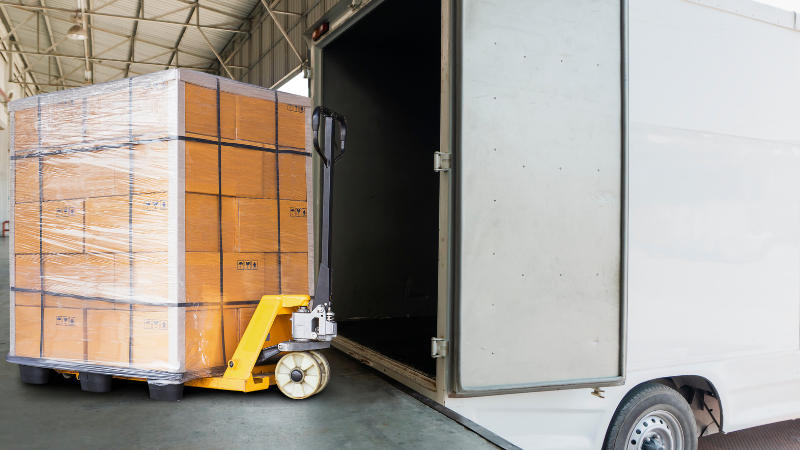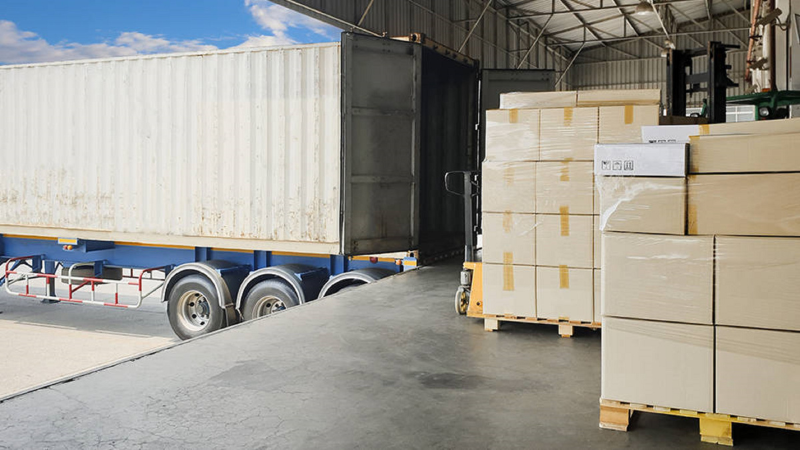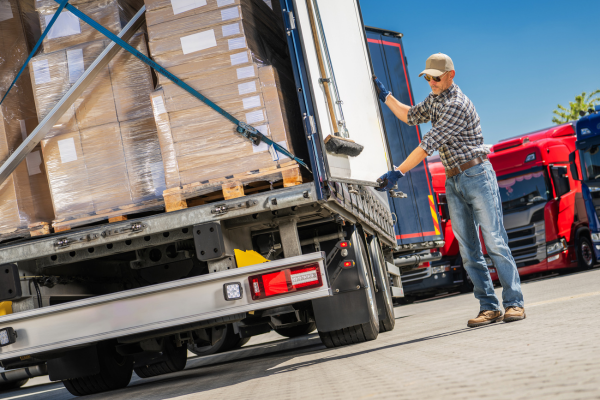What Is Load Securement and Why Does It Matter?
Load securement refers to the practice of securing cargo, so it remains stationary during transit. That means no shifting, no tipping, no falling, and no spilling. Improper load securement can lead to:
- Serious highway accidents
- Cargo damage or total loss
- Hefty DOT fines
- Delays in delivery
- Injury to the driver or others
Every load matters, whether you’re hauling auto parts, medical supplies, or heavy machinery. When you’re driving for a time-sensitive carrier like Straight Shot Express, there’s no room for error.
Types of Load Securement Equipment

There’s no one-size-fits-all approach to securement. The right tools depend on your freight type and trailer setup. Here are the essentials:
- Straps and Chains: Straps are commonly used on flatbeds to secure lighter or moderately heavy loads, while chains are ideal for heavy equipment and machinery. Ratchet straps come in various widths and working load limits, providing flexibility for different cargo types.
- Edge Protectors: These are critical when using straps, as they prevent the straps from fraying on sharp edges and help distribute pressure evenly across fragile cargo like drywall, furniture, or palletized goods.
- Binders and Ratchets: Binders (also known as chain binders or load binders) are used to tighten chains and hold heavy loads firmly in place. Ratchets are used with straps to create tension and lock them securely, making them crucial for both flatbed and enclosed trailer applications.
- Tarps and Covers: Besides shielding cargo from rain, wind, and road debris, tarps are available in various materials and sizes for specific uses such as steel tarps, lumber tarps, and coil tarps. Properly secured tarps also help stabilize lighter loads.
- E-Track & Load Bars: E-track systems consist of horizontal or vertical rails mounted inside dry vans or box trucks, allowing flexible positioning of load bars, straps, or shoring beams. Load bars act as barriers that prevent cargo from shifting during transit, especially in enclosed trailers.
- Slip Sheets and Friction Mats: These reduce the risk of cargo sliding on smooth trailer floors. Often used with pallets, they enhance grip and complement tie-down methods in van trailers.
7 Best Practices for Effective Load Securement

- Inspect Equipment Before Every Use
Frayed straps, rusted chains, or broken ratchets? Replace them. Damaged gear can fail under pressure. - Use the Right Gear for the Job
Heavy steel coils need chains, not straps. Palletized boxes may require load bars and e-track. - Distribute Weight Evenly
Unbalanced loads increase rollover risk and reduce fuel efficiency. - Double-Check Tie-Down Angles and Tension
A 45° angle offers better load control. Don’t overtighten and risk damaging the cargo. - Use More Tie-Downs Than Required When in Doubt
Extra securement can mean extra safety, especially on rough routes. - Recheck Securement After 50 Miles
Loads settle. A quick stop to tighten and check gear can prevent issues down the line. - Know Your Freight
Unique cargo (like vehicles or machinery) may require wheel chocks, blocking, or dunnage.
Common Load Securement Mistakes to Avoid
How Straight Shot Express Prioritizes Load Securement
At Straight Shot Express, we understand that load securement isn’t just about compliance—it’s about protecting lives, reputations, and time-critical deliveries. Our drivers receive hands-on training to properly secure all types of cargo.
Proper load securement is non-negotiable. It protects your safety, keeps you compliant with FMCSA regulations, and ensures that your cargo arrives on time and intact. Whether you’re hauling across town or across the country, taking time to properly secure your load is always worth it.
Interested in driving for a carrier that puts safety first? Join the Straight Shot Express team today and be part of a company that values precision, professionalism, and people.
Looking to start your driving career?
Give Straight Shot Express a call today at (920) 722-0956.

